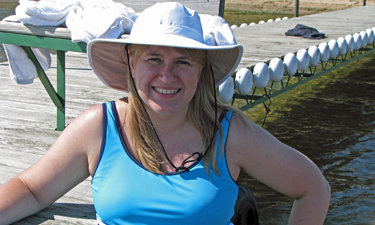 Following up on Michael Powell’s cover story in the September issue, this month’s cover story returns to the discussion about private funding for public parks by exploring what goes into a successful partnership between public parks and their conservancies. It seems that more and more agencies are venturing down this unfamiliar road and can benefit greatly from the experiences of trailblazers who have already navigated the partnership wilderness. In fact, the recent effort in Miami to start a conservancy for Museum Park makes Susan Rademacher of the Pittsburgh Parks Conservancy envious of their timing.
Following up on Michael Powell’s cover story in the September issue, this month’s cover story returns to the discussion about private funding for public parks by exploring what goes into a successful partnership between public parks and their conservancies. It seems that more and more agencies are venturing down this unfamiliar road and can benefit greatly from the experiences of trailblazers who have already navigated the partnership wilderness. In fact, the recent effort in Miami to start a conservancy for Museum Park makes Susan Rademacher of the Pittsburgh Parks Conservancy envious of their timing.
“It comes at a wonderful time, because there is such a great track record of so many different organizations having formed along the same general model but tailored to specific politics and social issues and infrastructure needs,” Rademacher says. “There is no one model that is the ideal model.”
The NRPA Congress in Houston this month brings innumerable opportunities to learn from others in the field like this. But one of the first steps to learning something new is admitting that we don’t already know everything. In her new book I don’t know: In Praise of Admitting Ignorance (Except When You Shouldn’t), author Leah Hager Cohen describes the feeling of freedom we get when we drop the pretense of being knowledgeable on every subject and confess, “I don’t know.”
“I think those words can be so incredibly liberating,” she tells NPR’s Steve Inskeep. “They can just make your shoulders drop with relief. Once you finally own up to what you don’t know, then you can begin to have honest interactions with the people around you.”
In three years with this magazine, I have written articles on topics ranging from crime prevention to magnetic induction lighting to Canada geese, so I get to say “I don’t know” on an almost daily basis. This merely reflects the vast array of specialties in parks and recreation — there are 11 different educational tracks at NRPA's annual conference alone, each with dozens of sessions. Each one brings an opportunity to step out of our comfort zone and explore new aspects of our field. But that’s not where the learning opportunities end, only where they begin. Equally as important are the networking events where we can tell each other those three little words and begin to collaborate on solutions — that’s where great ideas really start.

